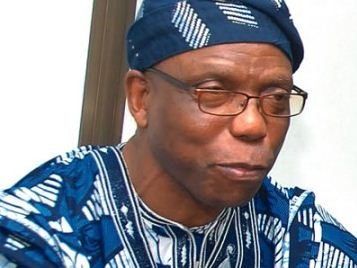Following reports circulated in the media some days ago which stated that medical students in Nigeria would henceforth spend 11 years in universities before obtaining an MBBS degree, the National Universities Commission has officially denied the reports.
According to the Executive Secretary of NUC, Prof. Julius Okojie, the reports are baseless and false.
He stated that the new Benchmark Minimum Academic Standard (BMAS) for Medicine and Dentistry, which had since been made public by commission, only provides for a seven-year training, leading to the award of MBBS/MDS.
Okojie said: “A seven year MBBS programme that encompass a seamless four- year acquision of the B.SC. Basic Medical Science with interest in either Anatomy/Physiology/Biochemistry.
“At the end of seven years, students would have acquired the Bachelor of Medical Science, Bachelorof Medicine and Bachelor of Surgery degrees. In case of dental programmes, students would have acquired a degree in Basic Dental Sciences and Bachelor of Dental Surgery.
Also Read>> Medical Courses Now 7 Years In Nigerian Universities – NUC
He continued: “The idea that the curriculum change was effected to enable the students mature psychologically for the profession is baffling and ludicrous. I am not aware that ability to cope with the rigorous and laborious training offered in medical schools is dependent on the age of the students. Available evidence does not suggest that. Seriously, I don’t think you have to be a grandparent to study medicine or dentistry in Nigeria or other parts of the world.
“Indeed, while I admit that there is need to dynamically improve and modify the current 6-year medical/ dental training curriculum in Nigeria to make it an all-encompassing curriculum, capable of producing medical and dental practitioners that are responsive to the 21st century needs of their communities, I must however state that this improvement does not necessarily require an increase in the duration of medical and dental education/training in Nigeria.
“Beyond the quality and content of the medical/dental curriculum and the need for regular dynamic reviews, a lot of factors impinge on the quality of medical/dental education/training and the quality of medical practice in Nigeria. These factors will need to be holistically and effectively managed to get the best out of medical/ dental education in Nigeria. For instance, the quality and number of entrants into medical school is very important.
“Therefore, before such pronouncements are made and circulated in the news media, I expect the policy regulators to have deeply reflected on its pros and cons before seeking to experiment with it. I expect them to appropriately balance the benefits with the cost, with both the quality of medical education/ practice and the health of Nigerians taken into good account.
“Pending further clarifications from the NUC on the news story making the rounds; it is crystal clear that any policy that seeks to increase the duration of training to 10 or 11 years will be an arduous one that bristles with reverberating and convulsive implications”, he concluded.


